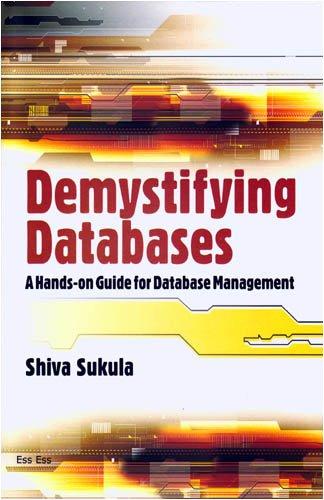Question
This question is based on our implementation of vector (FHvector) , which is typical. Recall that our implementation, internally, calls a method reserve() whenever extra
This question is based on our implementation of vector (FHvector), which is typical. Recall that our implementation, internally, calls a method reserve() whenever extra storage space is needed. Some details of this operation are universal for theoretical reasons. We may not have covered the theoretical reasons yet, but we have studied the implementation of reserve(). Consider the following scenario.
The Current State of One Particular FHvector
The capacity (mCapacity) of a particular FHvector is five (5) at some point in time. At that same time, there happens to be four (4) elements of client data in the list.
The Next Operation Requested of this FHvector
From that state, a client requests to push_back() 25 data items into the list.
The Internal Reaction of the FHvector
This will certainly require an increase in the vector's capacity. The question is about what actually happens internally in the time interval during which the totality of of these 25 push_back()s are executed.
Group of answer choices
There will be two calls to reserve().
There will be no calls to reserve().
There will be one call to reserve().
There will be three calls to reserve().
Step by Step Solution
There are 3 Steps involved in it
Step: 1

Get Instant Access to Expert-Tailored Solutions
See step-by-step solutions with expert insights and AI powered tools for academic success
Step: 2

Step: 3

Ace Your Homework with AI
Get the answers you need in no time with our AI-driven, step-by-step assistance
Get Started


